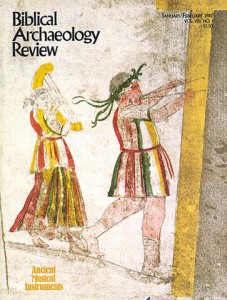The Dagon Collection: A Glimpse Into Agricultural History
Sidebar to: What Did David’s Lyre Look Like?
The lovely lyre seal described here comes from the personal collection of Dr. Reuben Hecht, prosperous grain merchant, renowned collector of archaeological artifacts, and founder of a unique museum in Haifa, Israel: The Dagon Archaeological Museum of Grain Storage and Handling.
Hecht was born in Antwerp, Belgium in 1909. Between the two world wars, his father, the late Jacob Hecht, established a river transport and grain storage empire in Central Europe. In 1936 Reuben Hecht immigrated to Israel and tried, but failed, to start what would later become the Dagon Silo Company. He returned to Europe in 1939 to organize clandestine immigration into Palestine. In 1941 the Germans invaded Yugoslavia where Hecht and his wife were working. They managed to escape via Italy to neutral Switzerland. Only in 1948, after the creation of the State of Israel, could Reuben Hecht return to Israel. Three years later he founded the Dagon Silo Company.
From its inception, the Dagon Silo Company has been the most efficient enterprise of grain importing, storage, and distribution in the world. The tariffs for its services, used mainly by the government for its grain imports, are considerably lower than those of grain silos in other ports around the globe.
Not only does Hecht run a most successful business and museum, he is also a prominent art collector, book publisher, and political advisor to Prime Minister Menachem Begin.
Already a library member? Log in here.
Institution user? Log in with your IP address.

